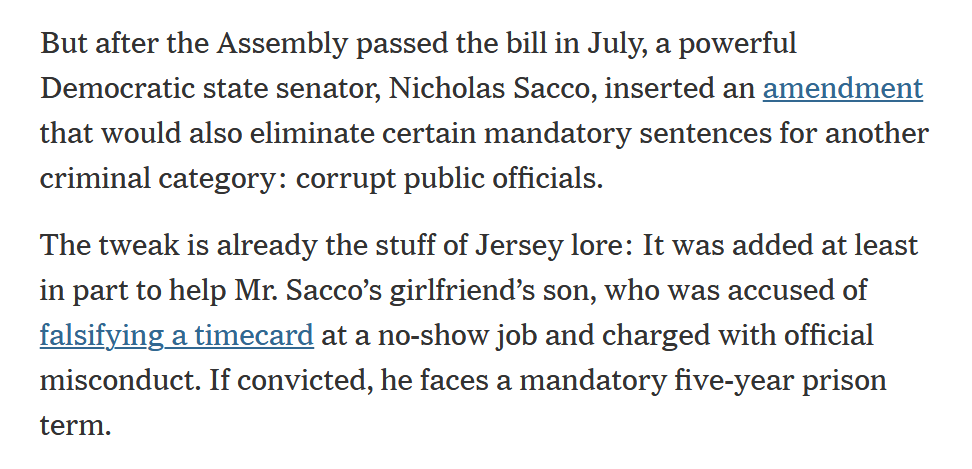
I have seen so many people (including folks on #lawtwitter) comparing what happened at the Capitol yesterday with the violence and property damage that happened in some cities during protests last summer.
Let me explain what is wrong with that analogy . . . . .
Let me explain what is wrong with that analogy . . . . .
To clarify -- my disagreement is not with those who are pointing out that law enforcement didn't respond with the same level of force and arrests at the capitol as it did during BLM protests.
That comparison deserves to be drawn and it raises some very important questions.
That comparison deserves to be drawn and it raises some very important questions.
My disagreement is with those who are saying that what happened at the Capitol yesterday is so similar to what happened during protests this summer, that people's reactions ought to be similar--a suggestion that those reacting more strongly now are hypocritical.
Here's one example of someone (a law professor) making the argument. But I've seen it plastered across the site all day, it keeps cropping up in my mentions, and so I want to respond.
https://twitter.com/AndyGrewal/status/1346986520905920517?s=20
There are a number of things that distinguish what happened at the Capitol from what happened during BLM protests. The most obvious is the reason that people protested---some protested about factually false claims about election fraud; others about real police shootings.
It should go without saying, but the reasons that people act are incredibly important in judging their actions. People who do bad things for bad reasons deserve more condemnation than people who do things for good reasons.
This is a pretty basic social and legal concept.
This is a pretty basic social and legal concept.
There is another, more important difference between the reasons for action.
The people at BLM protests were trying to get changes made to policing practices.
The people at the Capitol were trying to stop Congress from certifying an election.
The people at BLM protests were trying to get changes made to policing practices.
The people at the Capitol were trying to stop Congress from certifying an election.
Changing policing practices so that fewer civilians get shot is a totally legitimate aim. If we were to accomplish it through a court decision or legislation, I don't think people would object. In fact, most Americans would likely welcome it.
In contrast, stopping the certification of an election is not a legitimate aim. It would be a major problem if it were accomplished via a court decision. And it's even worse to try and do it via force or intimidation.
But the reasons for the actions we saw is not the only important difference.
There is also a huge difference in how those actions came about--specifically the role that public officials played in the turmoil and protests that led to the storming of the Capitol.
There is also a huge difference in how those actions came about--specifically the role that public officials played in the turmoil and protests that led to the storming of the Capitol.
The anger towards and distrust of police in Black communities didn't come from public officials. It came from people in those communities. In fact, much of the anger was directed at the public officials in those cities. Folks blame Democratic mayors for police violence.
And while some officials in Democratic cities expressed solidarity with the protestors, the mayors were not encouraging people to take to the streets and protest. The opposite in fact. They wanted people to stay home.
Contrast that with how Pres Trump and many other members of the GOP have reacted to the 2020 election:
They have been leading the charge to challenge the result.
They have been engaging in rhetoric that talks about violence and unrest.
They fanned these flames.
They have been leading the charge to challenge the result.
They have been engaging in rhetoric that talks about violence and unrest.
They fanned these flames.
The President himself held a rally in which he literally encouraged people to march to the Capitol. He told them that the Republicans in Congress were being weak, and they needed to show them to be bold.
He told them to march to the Capitol, and he repeated it multiple times.
He told them to march to the Capitol, and he repeated it multiple times.
Did Joe Biden, Nancy Pelosi, Chuck Schumer, or any one of a similar stature tell people to take to the streets this summer?
Did they give the protestors a fist pump like Josh Hawley did, as he was heading in to try and overturn the election using frivolous legal arguments?
Did they give the protestors a fist pump like Josh Hawley did, as he was heading in to try and overturn the election using frivolous legal arguments?
The answers to those questions is obviously "no"
Contributing to a bail fund or saying that you understand why people are angry--things that folks on the right criticized Dem officials for--is obviously not the same thing as encouraging people to take to the streets.
Contributing to a bail fund or saying that you understand why people are angry--things that folks on the right criticized Dem officials for--is obviously not the same thing as encouraging people to take to the streets.
So were there protests this summer at which some people broke the law?
Yes.
But what we saw at the Capitol yesterday and what happened over the summer obviously aren't analogous.
And to pretend otherwise seems like it is minimizing yesterday's attack on democracy.
Yes.
But what we saw at the Capitol yesterday and what happened over the summer obviously aren't analogous.
And to pretend otherwise seems like it is minimizing yesterday's attack on democracy.
Update: I had a chance to flesh these ideas out a bit more on @OpenMindTV with @heffnera
open.spotify.com/episode/4JhEH8…
open.spotify.com/episode/4JhEH8…
• • •
Missing some Tweet in this thread? You can try to
force a refresh



